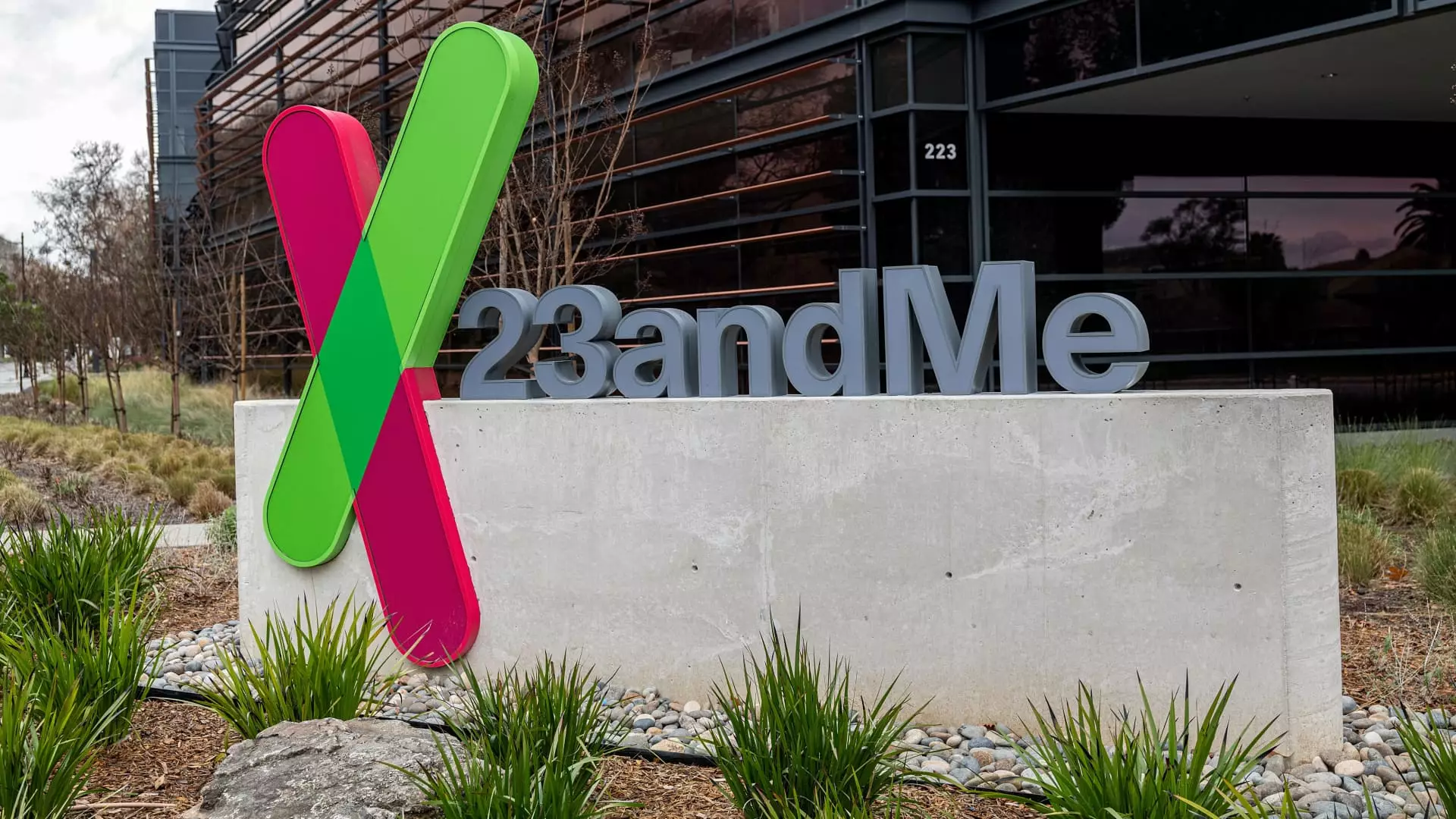23andMe, a pioneer in the direct-to-consumer genetic testing industry, has fallen into financially troubled waters, triggering its recent Chapter 11 bankruptcy filing. This move not only indicates severe financial distress but also raises questions about the security of its extensive genetic database that, unlike many other forms of consumer data, is irreplaceably personal. The company’s signature at-home DNA testing kits, ostensibly a tool for consumers to delve into their ancestral lineages and genetic predispositions, now face scrutiny as the implications of this corporate calamity ripple through both the industry and user perceptions.
The allure of discovering one’s ancestry has spurred millions to supply their biological samples, intrigued by the prospect of uncovering family secrets or genetic traits. However, the very nature of genetic information—being both sensitive and personal—renders it a potential target for nefarious use. As the National Human Genome Research Institute has pointed out, our DNA is a unique identifier, making it impossible to fully anonymize once it’s been collected. Therefore, the sale of 23andMe, should it proceed, prompts serious questions about consumer protection and ethical data handling.
The Privacy Concerns Intensified
Recent history has not been kind to 23andMe in terms of data security. An alarming breach in October 2023 exposed the personal information of approximately 7 million customers, highlighting just how vulnerable this type of sensitive data can be. This breach, coupled with the company’s ongoing financial struggles, has ignited a heightened scrutiny from various stakeholders, including regulators and consumer rights advocates. California Attorney General Rob Bonta’s warning about prompting users to delete their genetic data underscores the widespread concern regarding the security of this information in a time of financial uncertainty.
The reality of data mismanagement or misuse looms large, with potential risks ranging from identity theft to more insidious forms of exploitation. Security experts like Adrianus Warmenhoven have articulated the gravity of the situation, characterizing genetic data as the “blueprint of your entire biological profile.” This paints a vivid picture of the consequences of unregulated access to such data. If 23andMe’s assets get sold to a partner lacking a serious commitment to data protection, the fallout could be monumental for unsuspecting users.
Consumer Agency and Caution
In light of the ongoing turmoil, consumers are left wrestling with their choices. The fact that 23andMe allows users to delete their accounts does provide some sense of agency, but many may wonder if it is enough or if it’s too late. An array of instructions has been issued for customers wishing to obliterate their data, reinforcing the notion that awareness is crucial. However, deleting one’s data is not a foolproof solution. Even with the best of intentions, residual tracks may linger in the digital ecosystem, exposing former users to potential vulnerabilities.
Moreover, as individuals navigate their decisions regarding personal data sharing, a broader dialogue about digital literacy becomes essential. The responsibility now rests not just with companies to protect data but also on users to actively manage their digital footprint. Recommendations like enrolling in credit monitoring services or being vigilant about permissions granted to various apps and services serve as critical actions individuals should adopt as standard practice in an era plagued by privacy concerns.
The Ethical Implications Ahead
As 23andMe prepares to operationalize its bankruptcy proceedings, the ethical considerations surrounding data privacy and user trust must take center stage. Will the potential new owners prioritize consumer well-being, or will profit take precedence over protection? The narrative of 23andMe reflects larger systemic issues within the tech industry where user data, the currency of the digital age, is often inadequately safeguarded.
This situation serves as a cautionary tale about the intertwining paths of technological innovation and ethical responsibility. The hope remains that 23andMe’s plight could serve as a watershed moment, propelling stronger regulations and more stringent practices regarding how companies manage, store, and utilize sensitive information, especially in sectors dealing with personal data as intimate as genetics. The current scenario could catalyze both corporate stewardship over consumer data and a growing public consciousness about the sacredness of personal identity in a data-driven world.

